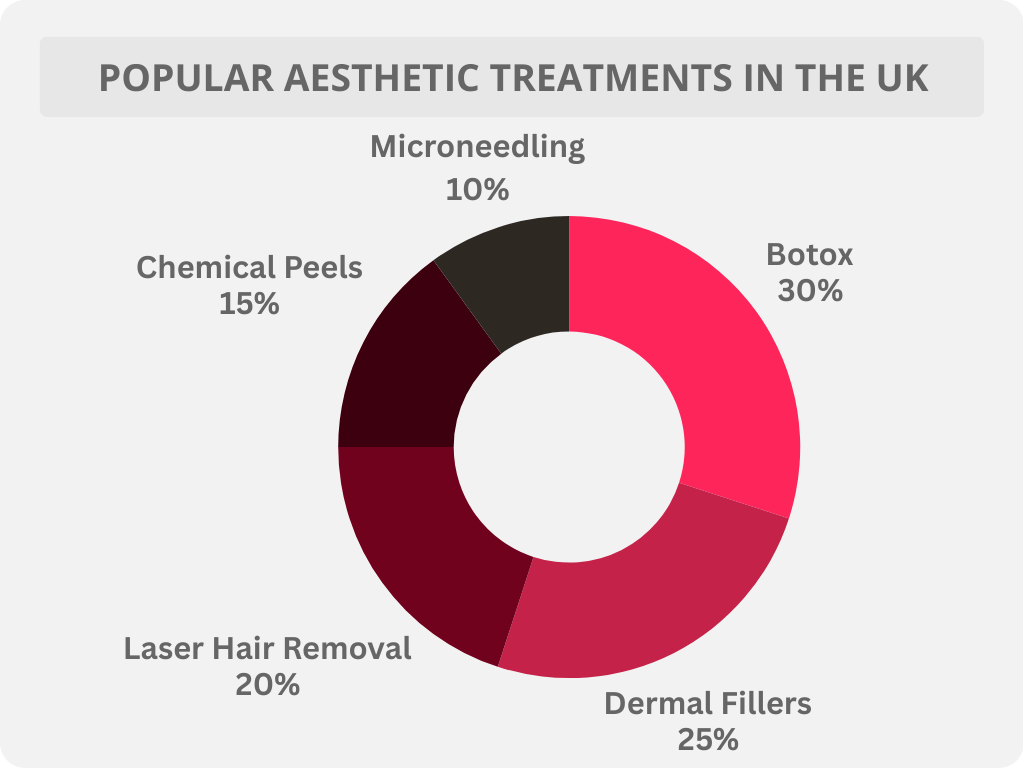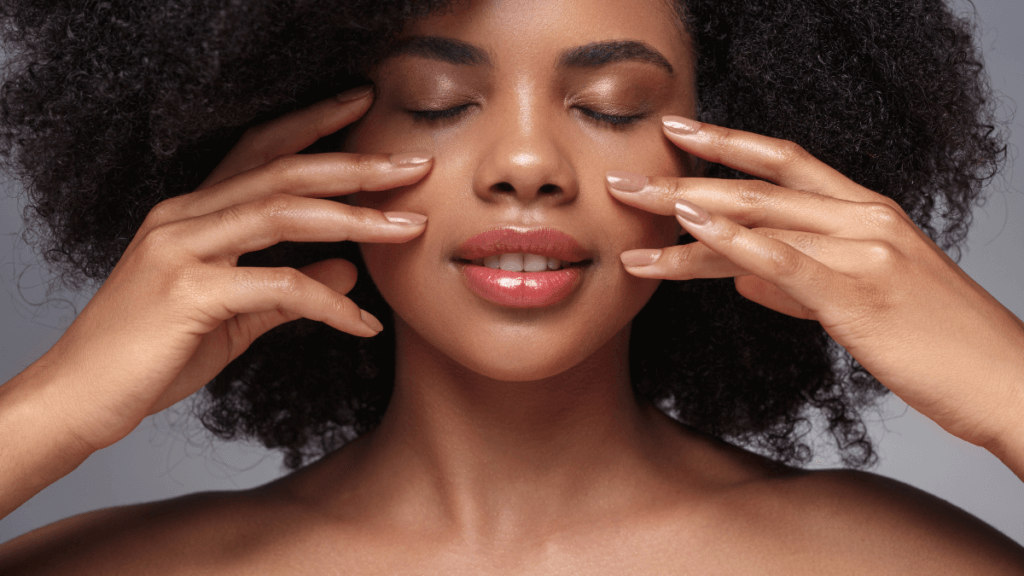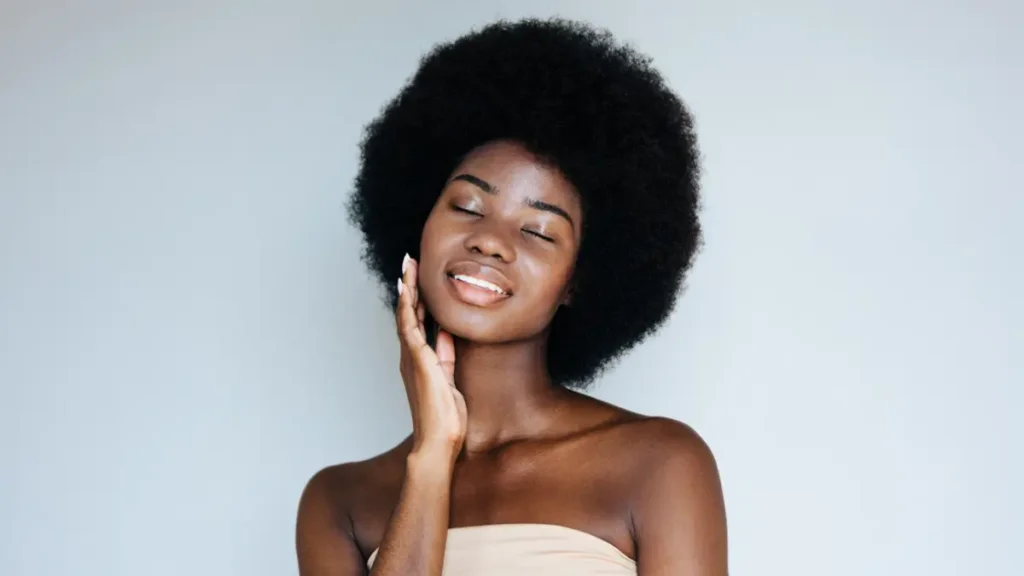If you are a dark-skinned goddess looking to rejuvenate your skin, combat the signs of ageing, or tackle pigmentation, then join us and let us help you find the BEST aesthetic treatment for your beautiful skin tone.
Because the reality is, that your stunning melanin-rich skin tone is more likely to experience unwanted side effects, and we want to avoid that at all costs.
Let us get started.
Aesthetic Treatments 101
Of course, the term aesthetic treatment refers to a non-surgical and minimally invasive treatment to help you combat fine lines, wrinkles, pigmentation, and dark circles under your eyes, as well as restore sunken areas on your face, reduce the appearance of acne scars, sun damage, the lot.
But, what a lot of people are unaware of, is that not all aesthetic treatments are suitable for everyone. Whether you have thin skin, older skin, super pale skin, Asian skin, or darker skin, we need to remember that each skin type is unique and we ought to treat it that way.
Here are the most requested aesthetic treatments in the UK today:
Botox: Botox remains one of the most sought-after aesthetic treatments used for reducing wrinkles and fine lines.
Dermal Fillers: These volume-izers add volume to areas like your lips, cheeks, and nasolabial folds to contour and plump up your face.
Laser Hair Removal: Believe it or not, laser hair removal is the most searched-for aesthetic procedure in the UK. Probably since it offers a long-lasting and convenient solution to unwanted hair.
Chemical Peels: These treatments remove the outer layer of skin to reveal the smoother, newer, and clearer skin beneath, that glows.
Microneedling: This procedure involves using fine needles to create micro-injuries on your skin. This happens in order to stimulate collagen production and improve your overall skin texture and tone.

Aesthetic Treatments Unsuitable For Darker Skin
High-Concentrated Chemical Peels. Not all chemical peels are recommended for darker skin tones, simply because darker skin tones respond differently to chemical formulations than other skin types. Chemical peels containing high concentrations of glycolic acid or trichloroacetic acid (TCA) can cause post-inflammatory hyperpigmentation (PIH).
Certain Laser Hair Removal Lasers. Traditional laser hair removal systems that use short wavelengths like the Alexandrite laser, are not ideal for darker skin as they target the melanin in your hair follicle BUT can ALSO affect the melanin in your skin, leading to burns, blistering, and scarring.
Intense Pulsed Light (IPL) Therapy. IPL is a broad-spectrum light treatment often used for hair removal and skin rejuvenation. Similar to laser treatments, it can affect the melanin in your skin and cause burns, blisters, and changes in skin pigmentation.
While microdermabrasion is recommended for all skin tones and types, it is important to note that it can still pose risks for darker skin tones. Generally speaking, darker-skinned patients are more likely to experience skin darkening from this procedure, which is caused by inflammation, such as swelling and redness.
Aesthetic Treatments Suitable For Darker Skin
ND:YAG Laser Hair Removal. The ND:YAG laser is considered one of the safest options for laser hair removal on darker skin. It uses a longer wavelength that bypasses the melanin in the skin and targets the hair follicles more selectively, reducing the risk of burns and pigmentation issues.
Radiofrequency (RF) Treatments. RF treatments, including devices like Thermage and Exilis, are effective for skin tightening and rejuvenation. These treatments use heat to stimulate collagen production without targeting the melanin in your skin, making them safe for African, Asian and Latino ethnicities.
Microneedling is generally safe for darker skin when performed by a skilled professional, as it does not use melanin-targeting heat or lasers, reducing the risk of hyperpigmentation.
Hydrafacial treatments involve a multi-step process of cleansing, exfoliation, extraction, and hydration using specialised serums. This treatment is gentle and non-irritating, making it suitable for darker skin tones. It helps improve your overall skin texture and clarity without the risk of hyperpigmentation.
Topical Treatments Containing Niacinamide
Topical treatments are a cornerstone of maintaining healthy skin, and Niacinamide is highly recommended by dermatologists for darker skin tones to help treat hyperpigmentation.
Superficial Chemical Peels With Mandelic Acid
Superficial peels can help darker skin tones combat acne and hyperpigmentation. Mandelic acid, for example, is derived from almonds and is a gentler alpha hydroxy acid (AHA) that penetrates your skin more slowly, reducing the risk of irritation.

To Round Things Off
Navigating the world of aesthetic treatments can be tough due to the vast number of treatments out there. Not to mention finding the perfect one for your skin.
Understanding which procedures are suitable and which pose risks makes the navigation process less daunting and slightly more doable.
As with any procedure, be sure to discuss all your concerns with a qualified dermatologist, aesthetician, or healthcare practitioner before choosing a treatment and booking your appointment.


